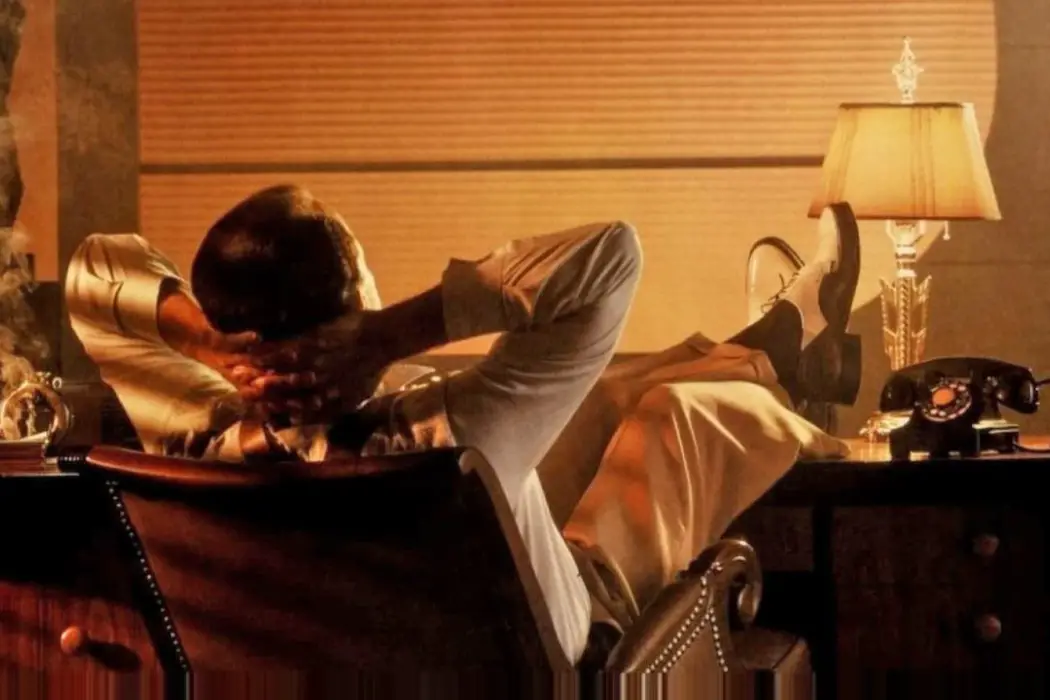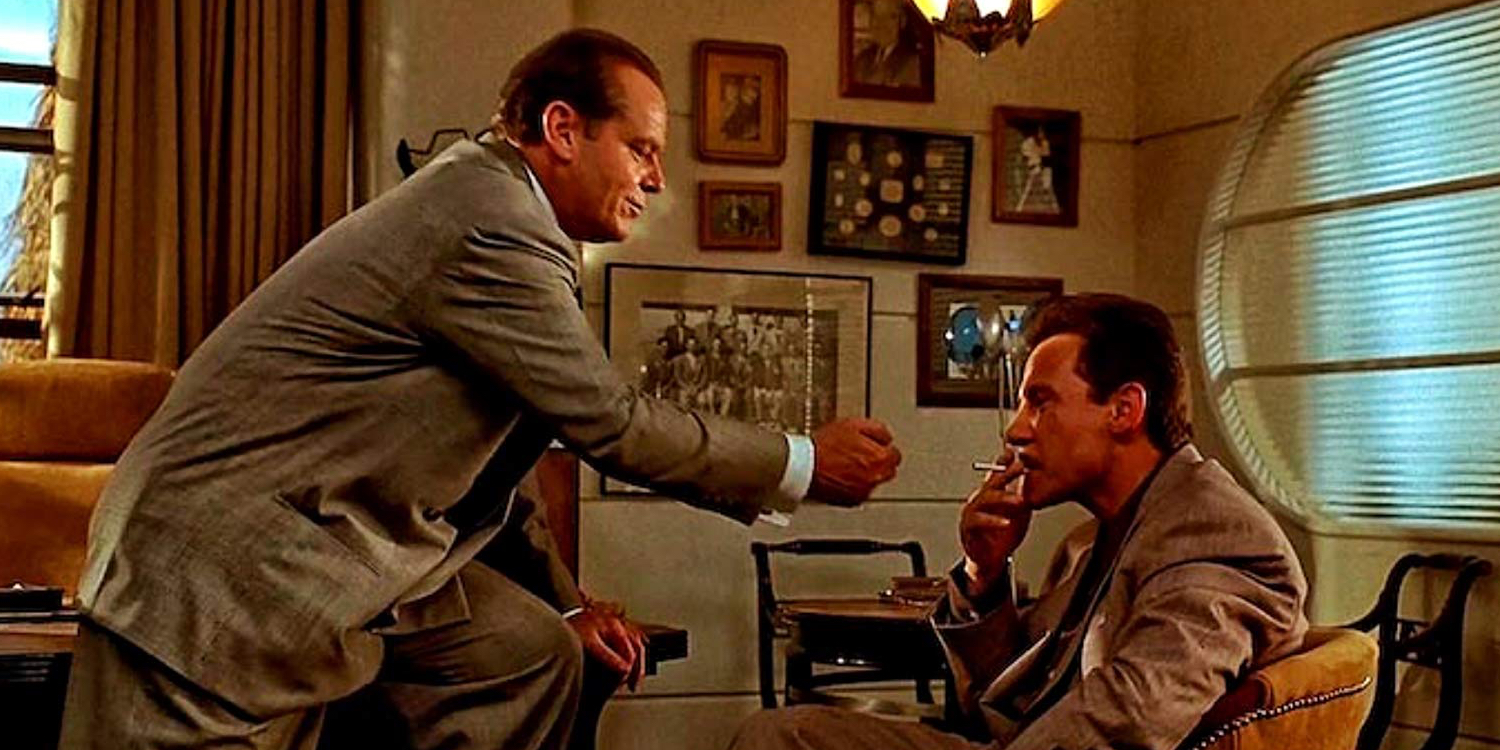THE TWO JAKES: One Movie Too Many?

Frank H. Wu is William L. Prosser Distinguished Professor at…
The problem of the sequel is the problem of our human condition: our own expectations. Chinatown is among the most celebrated movies ever made, boasting eleven Oscar nominations and one win, for best original screenplay. A neo-film noir from that idiosyncratic period of American cinema, the early 1970s, starring Jack Nicholson and Faye Dunaway, directed by Roman Polanski, from a Robert Towne script, it retains the power to shock. Its revelation is too compelling to ruin. (For your sake, any reader who has not appreciated Chinatown, stop, and do that, because no review of The Two Jakes will be half the edification of its predecessor.)
Yet like many achievements in the course of history, it suffers a lesser follow up. We cannot help ourselves. We wonder what happens next in any narrative worth our while. People wish for the positive to extend indefinitely and the negative to come to an alternative ending.
Experience is finite though. Individual immortality has not yet been realized. The lights must come up; the audience, depart.
The Two Jakes was envisioned as the middle installment of what was briefly imagined as a trilogy about Southern California. Chinatown was about the flow of water. The Two Jakes was about oil and gas. The never-made Cloverleaf was to be about the freeways.

The series as a whole was about how Los Angeles was corrupted by abundance and ambition. In its climate, ideal in reality, Robert Evans had been staging a comeback. The Hollywood impresario, “larger than life” when bad behavior could be excused by such a phrase, had intended to appear in front of the camera alongside Nicholson as Jake Gittes, grown successful and self-satisfied. Instead, Harvey Keitel was cast as the other half of the titular duo. Nicholson took on an extra role as director.
The Two Jakes is hardly unique. There is a surfeit of deficient sequels. The celebrated Godfather II, cited as the exemplar of how an original can be surpassed, gave way to Godfather III, not usually listed among the preeminent titles to check out. The elegant Highlander was retconned in Highlander II, which led to still lesser on television. Although Jaws was the summer blockbuster to initiate the phenomenon of the summer blockbuster, it spawned a line that devolved into self-parody.
The Two Jakes is not awful. It is only set up by Chinatown to its disadvantage. The artists who are responsible and the ticket buyers who are willing to support their creation cannot help but be disappointed.
What Is the Mystery?
On its own, The Two Jakes might fare better. The viewer ignorant of Chinatown would be witnessing a conscientiously plotted if slow-burning thriller involving infidelity, real estate development, and, as it turns out, how the past lingers just beyond our grasp of desire. Many movies depend on our accepting that there are no accidents. This story depends on our rejecting the implausibility of coincidence.
Without Chinatown, however, the protagonists’ sense of longing would be misinterpreted as conventional to the genre. The secret of “my sister, my daughter,” is the crucial continuity. It is why anybody cares about the characters. The attempt to redeem the villain, Noah Cross, of the first piece, comes from the sacrifice of the client, Jake Berman, another land speculator, of the second piece. Their exertions are futile.

The cast is talented. Meg Tilly is the perplexing Kitty Berman (nee Mulwray). Madeleine Stowe is the merry Lillian Bodine. Perry Lopez, who played officer Escobar, is back to good effect, toiling away on the police force, as is James Hong, who was butler Kahn, doing fine in oceanside retirement, in a throwaway bit no fault of his own.
The newer movie is so solid it becomes stolid. The camera is passive. The voiceover is droning. The scene in Chinatown when “nosy” Gittes has his nostril sliced open by a minor thug (Polanski himself in a cameo) has a counterpart in The Two Jakes when Gittes forces Loach (David Keith) to “suck it” (his revolver) as he loses control. The former is disturbing and tense, the latter despite its primitive symbolism limp and lackluster.
Gittes informs us he is the leper with the most fingers. His smirk has become smug. Nicholson should have found a better director. Or an honest one who would have alerted him to his smarminess.
Although Gittes can engage a lady or us as spectators whether he is cynical or distrustful, he manages only unctuous. He is requested to surveil an adulterous wife by an aggrieved husband, the second Jake. He is accustomed to such assignments as a prelude before a divorce case when such legal actions were complicated. They rehearse. Keitel as an actor is eminently believable as Berman the character who cannot convince himself of his lines.
They arrive where the tryst allegedly is occurring. The episode is interrupted by the suddenly worked-up Berman, who pulls out a gun. He shoots his rival who only then is revealed to our gumshoe as the client-murderer’s business partner. Eventually the widow of the victim pulls herself together well enough to come onto the private eye, in the inexorable proposition of a double cross.
The remainder of the intrigue displays the admirable complexity that requires a decent detective, both competent and ethical. It is not clear that Gittes is either, but he is no extortionist as he is accused of being.
What Is It Relative To?
Everything in the universe might be relative — but to what? Here is a handy means to assess The Two Jakes. When Gene Siskel and Roger Ebert inspected it on their television show, which defined film criticism for popular consumption before the internet, they also looked at Young Guns II. That was the follow up to Young Guns, as if Brat Packers had traveled back in time from a John Hughes teen hit to the Wild West. Rocker Jon Bon Jovi provided the soundtrack to Young Guns II, and Emilio Estevez returned as Billy the Kid.

The Two Jakes is superior to Young Guns II in all respects, including the depiction of violence. But Chinatown and Young Guns cannot be mentioned in the same sentence without breaking a smile at the absurdity of any comparison. Siskel and Ebert were content with the Jakes, for what their agreement is worth.
We want to go home again, in spite of novelist Thomas Wolfe warning about the impossibility of that journey. Our own memories are better than our experiences. You cannot watch the same movie twice. You cannot make it either. If you take movies seriously, you will have seen Chinatown. By all means, proceed to The Two Jakes. Just be aware: it ain’t Chinatown anymore. It’s just the suburbs.
The Two Jakes was released August 10, 1990.
Should they make another movie in the Chinatown series? Should it include the Mulwray family too?
Does content like this matter to you?
Become a Member and support film journalism. Unlock access to all of Film Inquiry`s great articles. Join a community of like-minded readers who are passionate about cinema - get access to our private members Network, give back to independent filmmakers, and more.
Frank H. Wu is William L. Prosser Distinguished Professor at University of California Hastings College of the Law, where he has taught on film and law; he previously served as Chancellor & Dean at the institution. He has been published everywhere from the New York Times and Washington Post to the Chronicle of Higher Education and National Law Journal to Huffington Post, and he writes regularly about photography for 35mmc. He is a fan especially of 1970s paranoid thrillers.













